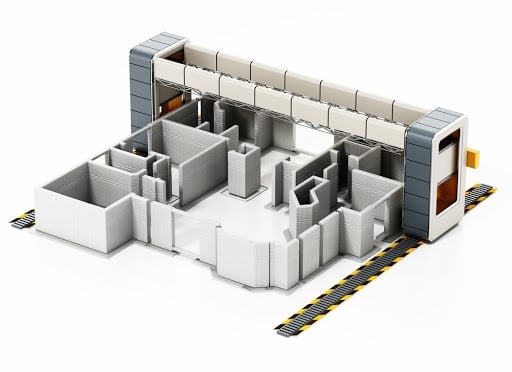My path to entrepreneurship isn’t one most would brag about. I wasn’t a whiz-kid salesman. I didn’t start a lawn mowing company when I was six years old. I wasn’t hustling kids out of their money for pet rocks and other useless trinkets.
I was an average kid. Probably a lot like you. I played with Legos. I traded baseball cards. And, occasionally, I’d sneak onto the rooftop and throw my paratrooping GI Joes to their impending death.
In fact, the only money I was worried about making was my measly allowance earned by doing the dishes, dusting the furniture, and taking out the trash.
High school wasn’t much different. I couldn’t care less about money, my future career, wealth building strategies, or, least of all, entrepreneurship.
I was too busy playing sports, chasing girls, and drinking the occasional beer. That’s it. No entrepreneurship in my foreseeable future.
My first job was flipping burgers at Burger King for a whopping (pun intended) $5.15/hour. During my interview, the manager actually told me, “If I ask you to jump, you ask me ‘how high?’ ” I quit two weeks later.
Next, it was on to landscaping. Hot temperatures, long days, and menial work. That didn’t last long either.
I needed to try my luck indoors and acquired a job hawking shoes at a local shoe store for $5.25. As much as I enjoyed the climate-controlled environment and flirting with the ladies that would come in, I just wasn’t making ends meet.
I decided to do something about it. I contacted my regional manager at the time and decided to strong-arm him. I met with him soon after and demanded a raise or else I would be forced to quit.
Looking back on it now, he gave me the only reasonable answer he could. He looked me right in the eye and said, "Bye."
LESSON ONE: DO THE WORK FIRST
And that, my friends, was my first lesson in the real world of work. No one in life is going to give you want you don’t deserve.
Even if you do happen to fall upon some luck, if you haven’t done the work first, the reward just won’t last. You have to earn it every single day.
My bluff had been called during that conversation with my district manager. So, I did what any self-respecting young man would do – I backpedaled. Fortunately for me, my manager was in a forgiving mood.
Six months later I was managing that humble little shoe store. It wasn’t that I was a superior salesman and it wasn’t that I was uniquely qualified to run the operation.
I had learned one simple lesson and executed relentlessly – recognize what needs to be improved and do the work.
Around this time, I started receiving offers from other department stores to manage their stores. Companies are always searching for the limited amount of people who are willing to look for problems and exert themselves in the cause of fixing them.
But, I was happy with my current position. I was proud of the work I had done to grow our revenue.
Truth be told, I was comfortable with where I was and scared to look beyond the limited success I had manage to acquire.
LESSON TWO: GO WHERE THE OPPORTUNITIES ARE
On the other hand, I recognized the need for larger opportunities so I decided to make a change.
I took a position with a clothing store. The position was a step down from where I previously was into what they referred to as a "Management Training Program."
Technically, I was the equivalent of an assistant manager and, with it, came a reduction in pay from my previous employment.
No matter. I recognized that in order to more forward, sometimes you have to take a step backwards.
I began to apply the same set of skills I had developed in previous positions and employed the tactics outlined in Lesson One.
Five months later I was asked to move four hours north to help open a new store in Northern Utah. Four months later I was asked to open my own store in Southern California to which I ecstatically said, "YES!"
Live was good on the West Coast. The store staff had been hired. We launched a successful grand-opening, and we were getting into the busiest time of the year – the holidays!
Then, I received a phone call. Our National Guard Unit had been activated and I would soon be leaving for six month’s military training and an additional twelve months in Iraq.
Not quite the opportunity I had in mind.
LESSON THREE: ADJUST WHEN NECCESSARY
With my wife, we moved back home, I left to serve in Mississippi, then back to California, then to Kuwait, then ultimately to Iraq.
I would be gone for a total of eighteen months during our tour and, although, it was not at all what I had expected, my wife and I used this time to reflect upon my career after the military.
My job was secured. I could have easily gone back to selling shoes and clothes. I could have continued advancing in the company like we had planned. I could have lived a comfortable life.
But going to war changes the way you think about your life and how you’d like to spend the remainder of your days on this planet.
I liked retail – for the most part. I did not like working nights, weekends, or holidays and so, with no backup plan, I informed my employer I would not be coming back when my tour was complete.
Among the hardships of serving in a foreign nation, there are a few perks. One that immediately comes to mind: no taxes. Which means, between that and my wife moving in with her parents while I was away, we saved a lot of money.
The problem was we had no idea what to do with it!
So, during a two-week leave from Iraq, my wife and I met with a financial planner to discuss our financial affairs. It just so happened he was looking to hire two new financial representatives and, with no other plan in sight, I leapt once again (refer to Lesson Two).
I took all of my insurance and investment materials to Iraq with me and studied to pass my exams when I returned.
Financial planning was good. I excelled quickly. I learned the plans, programs, and strategies well. I could connect with people thanks to my previous retail sales. I took like a bird to flight.
One little problem: I got bored.
It was becoming monotonous. I felt like I had outgrown the firm I was working with at the time. I needed something more. Something better. Something more fulfilling.
"I know," I said, "I'll start my own financial planning firm."
And that's exactly what I did.
LESSON FOUR: KNOW YOUR VALUE
It’s not that things were bad with the financial firm I had been working with. In fact, they were great. I was making good money. I was satisfied with the work. I was getting results for my clients. I was learning a ton about how money and the economy worked.
But, I had this nagging little voice in the back of my head repeating the phrase, "You're not making what your worth."
I put pen to paper and realized that nagging little voice was right. I wasn’t. If there was one thing I learned in my six years in the financial planning world it was that math doesn’t lie.
In fact, if my calculations were correct, I could leave my current firm, start my own and immediately see a 50% pay increase. Done deal!
Within six months I resigned and ventured out onto my own – my first real world experience in owning my own business.
Not much changed for me. I got a new office down the road from my previous one. I maintained my existing clients. I continued serving their investment and insurance needs.
All in all, I felt great about my decision to go out on my own.
I spent more time with my family. I had more control over the way I spent my day. I could do the things I wanted to do. I could say the things I wanted to say. If I failed, I could adapt quickly and didn’t have to answer to anyone but myself. If I succeeded, it was due to my efforts and actions.
But, most importantly, I could spend a little time each day exploring other interests that were important to me.
One interest in particular was the area of self-development, specifically as it pertains to masculinity. I wanted to understand how to be a great husband, how to be a great father, how to be a great man.
Gradually, the study of masculinity began to consume more and more of my time. And, at times, it came at the expense of my financial planning practice.
Everything in my heart and mind was telling me to continue down the rabbit hole I embarked upon. But, I did not want to neglect my practice and I certainly did not want to neglect my clients.
I began to question how I could serve my current clients in a way that would be meaningful to them and, at the same time, pursue a passion of mine.
LESSON FIVE: AUTOMATE AND RECREATE
I spent the next twelve months developing the systems to do just that – accounting systems, client communication systems, investment systems, retention systems, and everywhere in between.
The beauty of creating systems is that you, in essence, are able to buy more time (the one thing you can’t get back) in doing so.
Through the power of technology, automation, and a little planning, you’re able to multiply your efforts exponentially.
Executing this lesson is what has allowed me to start my second six-figure business, Order of Man.
Yes, it’s profitable but, more importantly, it gives me even more time to do what I want and the freedom to have the conversations I want to have with the people I want to have them with.
That’s what life is all about – ultimate flexibility and freedom. And, it’s something I’ve been able to create through the power of the five lessons I learned on my journey to entrepreneurship.
The reality is most people are like me and you – average. But, most entrepreneurs only want to talk about the "sexy" side of starting a business.
Most people aren't "natural born" salesmen. Most people won't start their own business when they're five. Most people won't accidentally stumble into the greatest company known to man.
It typically takes something more. For the rest of us, it’s about the average, ordinary, and uneventful path to creating the life you want. By doing the work first, searching for opportunities, adjusting when necessary, understanding your value, and automating and recreating your results, you too may earn the title of "entrepreneur."











